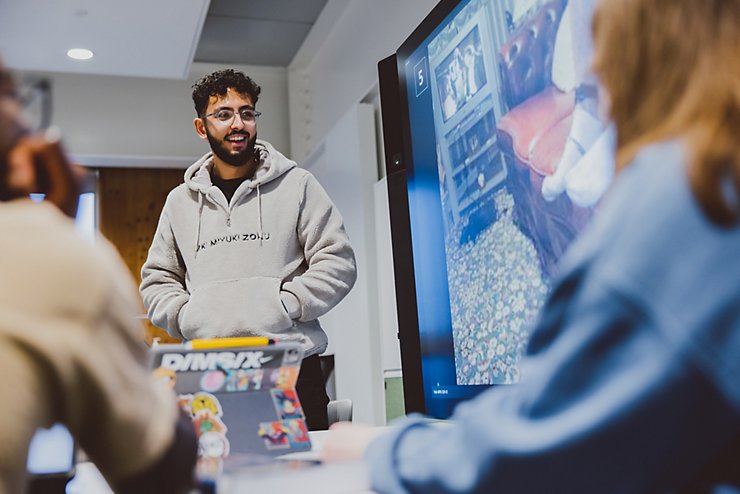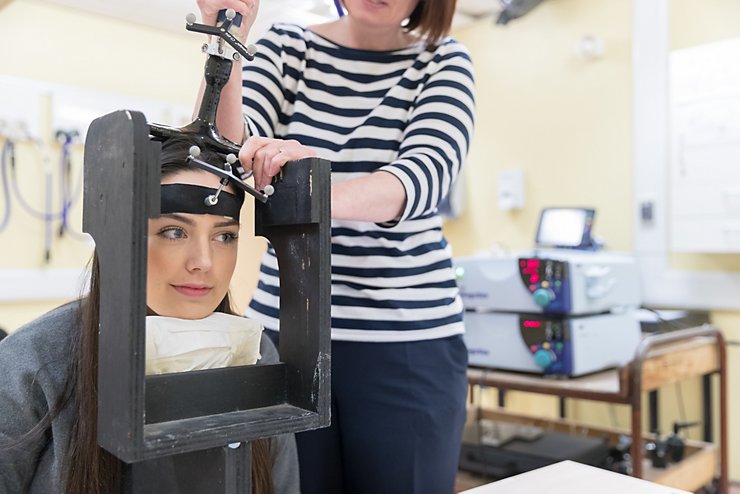For full details including fees for part-time students and reduced fees during your time studying abroad or on placement (where applicable), see our fees page.
If you are a student from the EU, EEA or Switzerland, you may be asked to complete a fee status questionnaire and your answers will be assessed using guidance issued by the UK Council for International Student Affairs (UKCISA).
Additional costs
All students will need at least one device to approve security access requests via Multi-Factor Authentication (MFA). We also recommend students have a suitable laptop to work both on and off-campus. For more information, please check the equipment advice.
As a student on this course, you should factor some additional costs into your budget, alongside your tuition fees and living expenses.
You should be able to access most of the books you’ll need through our libraries, though you may wish to purchase your own copies or more specific titles which could cost up to £25.
The school covers the cost of a DBS check. If you choose to go on placement, the cost of travel will be dependent on location of placement and proximity to term-time address.
There is a compulsory trip that could cost up to £25 and some coursework may require you to buy apps or similar software, costing up to £10.
Please note that these figures are approximate and subject to change.
Scholarships and bursaries
The University of Nottingham offers a wide range of bursaries and scholarships. These funds can provide you with an additional source of non-repayable financial help. For up to date information regarding tuition fees, visit our fees and finance pages.
International students
We offer a range of international undergraduate scholarships for high-achieving international scholars who can put their Nottingham degree to great use in their careers.
Tuition fees 2025/26 (UK undergraduate students)
The UK Government is intending to increase the tuition fee cap for UK undergraduate and Initial Teacher Training students studying in England to £9,535 for the 2025/26 academic year. This is an increase of £285 per year. Course pages will be updated to reflect the latest tuition fees as more information becomes available. For more information, visit the Government’s website and take a look at our FAQs.
For full details including fees for part-time students and reduced fees during your time studying abroad or on placement (where applicable), see our fees page.
Additional costs
All students will need at least one device to approve security access requests via Multi-Factor Authentication (MFA). We also recommend students have a suitable laptop to work both on and off-campus. For more information, please check the equipment advice.
As a student on this course, you should factor some additional costs into your budget, alongside your tuition fees and living expenses.
You should be able to access most of the books you’ll need through our libraries, though you may wish to purchase your own copies or more specific titles which could cost up to £25.
The school covers the cost of a DBS check. If you choose to go on placement, the cost of travel will be dependent on location of placement and proximity to term-time address.
There is a compulsory trip that could cost up to £25 and some coursework may require you to buy apps or similar software, costing up to £10.
Please note that these figures are approximate and subject to change.
Scholarships and bursaries
The University of Nottingham offers a wide range of bursaries and scholarships. These funds can provide you with an additional source of non-repayable financial help. For up to date information regarding tuition fees, visit our fees and finance pages.
Home students*
Over one third of our UK students receive our means-tested core bursary, worth up to £1,000 a year. Full details can be found on our financial support pages.
* A 'home' student is one who meets certain UK residence criteria. These are the same criteria as apply to eligibility for home funding from Student Finance.








